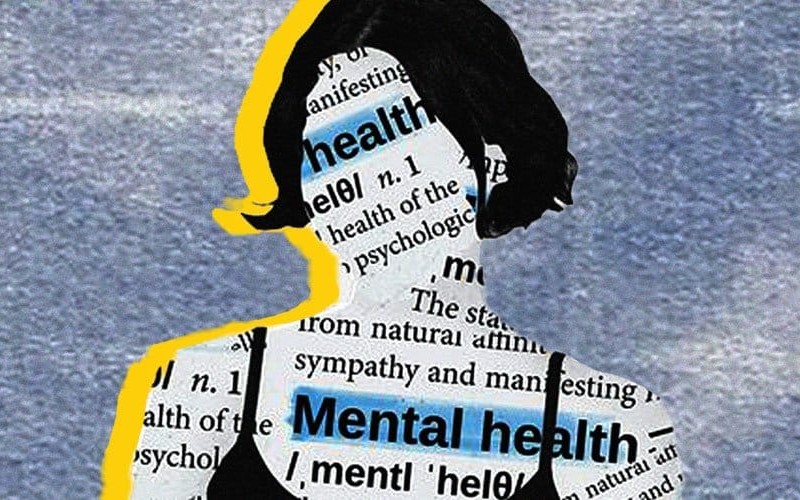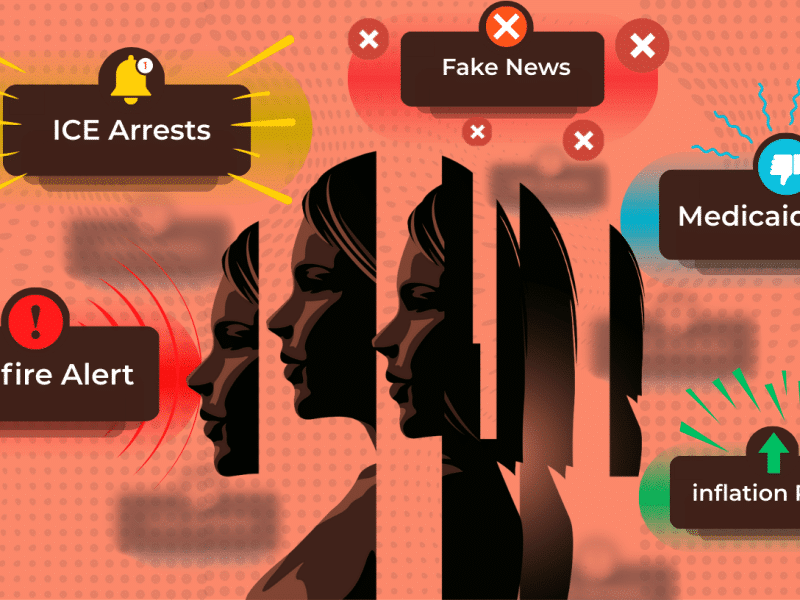The Way We Talk About Mental Health as Latinos Needs to Change
Mental health issues continue to be a growing crisis in the Latino community, and yet the topic continues to be hushed. The stigma that needing support screams weakness, especially amongst Latino men, is literally costing lives.

The conversation around mental health has changed drastically in recent years with the rise of awareness and education. For example, May is Mental Health Awareness Month, and it has contributed tremendously to the progress. However, in the Latino community, some stigma remains, and it’s reflected in the way Latinos tend to discuss mental health issues. Views on mental health vary among Latinos; some view mental health issues or illnesses as a weakness or personal failure, some experience shame and keep things quiet, and some are actively afraid of being labeled as “crazy.”
While the importance of mental health is increasingly recognized as integral to overall health, the way we talk about it in the Latino community still needs some work. Many factors contribute to mental health issues and disorders, including psychological, biological, environmental, and even socioeconomic factors. This is why, though they may vary in nature and level of severity, we all experience mental health challenges at one point or another. It’s part of the human experience.
Mental illness affects every demographic and a 2023 study revealed that “one out of every two people in the world will develop a mental health disorder in their lifetime.” In the U.S., almost 22% of Latinos reported a mental illness according to the 2021 NSDUH Annual National Report. Moreover, NoStigmas reported that nearly 17.7% of Latinos suffer from depression during their lifetime. Latinos are no strangers to mental health issues, but openly talking about them is not the norm.
As Latinos, whether we’re going through a hard time, have experienced trauma, or live with a mental health disorder, breaking the silence is essential in helping the community break away from the stigma around mental health. Moreover, it’s not just about breaking the silence, it’s also about changing the language we use when it comes to mental health. This is how we can contribute to a more understanding and supportive community.
Destigmatizing the language about mental health in the Latino community
Language is powerful because it influences how we perceive things and the attitudes we adopt about any given topic. This is why the way mental health is discussed within Latino culture needs to change. More often than not, people who struggle with mental health issues are labeled as “crazy,” “unbalanced,” “unstable,” and even “lazy.” All of these words have negative connotations and they perpetuate stigma around mental health, causing shame for many. This kind of language also perpetuates the culture of silence, which prevents Latinos from asking for help or even discussing their issues.
Being more inclusive and respectful can go a long way in making our friends, family members, and other people around us in the community feel safe about seeking support. While strides have been made in education around mental health, most Latinos are still misinformed about it. For example, many still believe that psychological therapy is reserved for people who are “crazy,” but that’s just not the case.
Therapy provides support to unpack and resolve trauma, examine experiences that have marked us, navigate difficult situations or life transitions, learn interpersonal skills, and more. Essentially, it provides a safe space for the betterment of our mental and emotional health. Just as our bodies need regular check-ups, so do our minds, and that’s what therapy is for. However, for Latinos, therapy means there’s something deeply wrong and it’s often seen as a last resort rather than a resource.
Changing the way we talk about mental health issues and solutions like therapy or even medication, which is also viewed as a negative in the Latino community, can make a difference for all. Destigmatizing the language about mental health requires us to stop using the usual, negative terms, be more mindful about our choice of words, and kindly correct others. It also requires us to talk more openly about mental health and encourage education not only in ourselves but also in our inner circles.
Other barriers affecting Latino mental health
The way we talk about mental health as Latinos is not the only thing keeping the stigma alive in the community. Gender role expectations contribute to it as well, with Latino men feeling pressured to embody strength and dominance (machismo), while Latina women may internalize beliefs of self-sacrifice and independence (marianismo), deterring them from seeking help. Additionally, the notion of keeping “family business” private further inhibits open discussions about mental health within the community.
A general lack of education and awareness regarding mental health issues in the Latino community leads to difficulty in recognizing when support is needed and understanding the benefits of treatment. Moreover, a significant portion of Latin Americans face financial constraints and lack adequate insurance coverage, making mental health care unaffordable or inaccessible. This issue is exacerbated by challenges in finding culturally sensitive providers, especially for those who require Spanish-speaking professionals.
Immigration status further complicates access to care, leaving many individuals with undiagnosed and untreated mental illnesses. The scarcity of mental health providers who understand the cultural nuances of the Latino community is another barrier to accessing effective care. Not to mention that religious beliefs can also be a hurdle, with some Latinos believing that the power of faith is an effective replacement for professional therapy.
Addressing these barriers requires comprehensive efforts and a systemic change, but we can start with our inner circles and communities by supporting mental health initiatives aimed at Latinos, changing the way we talk about mental health, encouraging conversations about mental health within Latino friend groups, families, and communities at large, sharing mental health resources, and educating ourselves and others.




